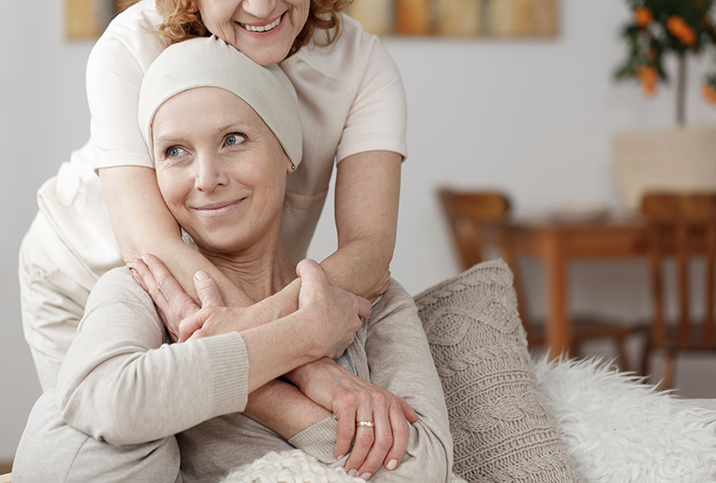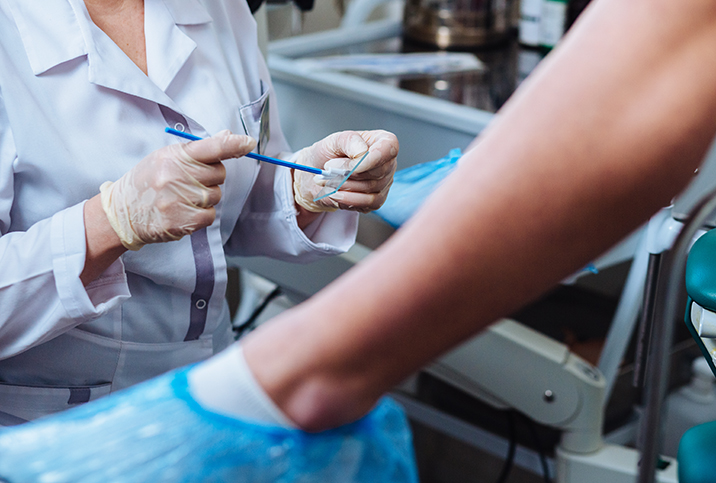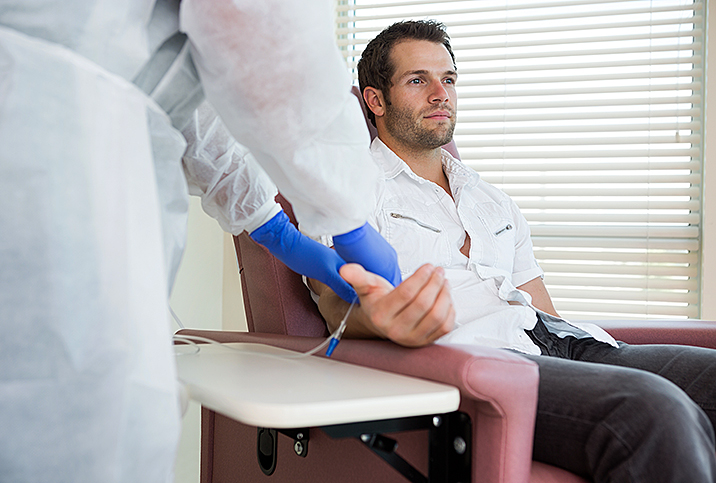Tips for Coping With Cervical Cancer Treatments

Battling cervical cancer is tough enough without the challenging side effects of treatment, but just a few management tips can make a difficult time a little easier.
A look at cervical cancer
Cervical cancer affects 0.6 percent of American women, more commonly after age 30, and comprises 0.8 percent of all new cases of cancer in the United States. This cancer begins in the cervix, the cylinder-shaped tissue that connects a woman's uterus and vagina. It is most often caused by a long-lasting infection with the human papillomavirus (HPV), a common sexually transmitted disease (STD) to which an estimated 75 percent of reproductive-aged Americans have been exposed. However, most women who get HPV don't develop cervical cancer.
Risk factors for cervical cancer include smoking, multiple sexual partners, chlamydia, long-term use of oral contraceptives, three or more full-term pregnancies, a full-term pregnancy before age 20, low socioeconomic status, a weakened immune system, family history of cervical cancer or use of a hormone called diethylstilbestrol (DES). Early detection methods include HPV tests to identify the virus and Pap smears, which look for cancerous cells in the cervix. When identified early, cervical cancer is easy to treat.
Treatment options
Treatments for cervical cancer vary based on the stage and grade of cancer and patient characteristics such as age, general health, personal circumstances and preferences. Common treatments include surgery, radiation therapy, chemotherapy, targeted therapy and immunotherapy. Early stages of cervical cancer may be treated with either surgery or radiation, in combination with chemotherapy. In cases that have progressed further, doctors usually forgo surgery to focus on just radiation and chemotherapy, and in the most advanced cases, chemotherapy alone is prioritized.
Common treatment side effects
Treatment for cervical cancer typically is highly successful, but side effects can be a challenge. Surgery and radiation may cause bowel and bladder changes. Surgery and radiotherapy impact reproductive organs and may result in infertility. Fatigue, which may last for months, even years, is a common symptom of cancer and of chemotherapy and radiation.
These treatments can trigger menopause and all of its repercussions, which increase risk for osteoporosis and heart disease. Cervical cancer treatments commonly impact sexual health, causing various symptoms including decreased libido and, if a woman's ovaries are removed, vaginal changes such as dryness and atrophy and possibly pain when having sex. Radiation can cause vaginal stenosis, or reduced elasticity of the vagina, which can make sexual intercourse difficult or uncomfortable (though ability to reach orgasm is not affected).
Coping tips
If you can, research coping and recovery strategies before your cancer treatment so you know what to expect and can incorporate other beneficial regimens, such as vitamins, dietary changes, exercise or yoga and massage. These options, along with the tips below, can help address the unpleasant side effects of traditional treatments. While there may be no evidence showing benefit from some of these tips, they may still help an individual's symptoms:
- Use peppermint and chamomile tea to decrease nausea and abdominal pain.
- Manage fatigue by prioritizing sleep hygiene, taking short (30 minutes or less) naps, eating well and getting mild (doctor-approved) exercise.
- Maximize your higher-energy times to knock off priority tasks and work and ask for help where you need it.
- Stay hydrated and avoid spicy foods to help with diarrhea or constipation.
- Try pelvic floor exercises to strengthen key muscles and reduce urinary incontinence.
- Ask your doctor about managing menopause symptoms, including short-term hormone replacement therapy (HRT), vaginal creams and prevention and screenings for osteoporosis and heart disease.
- Discuss treatments for sexual health issues with a sex therapist.
- Consider using a vaginal dilator and/or having regular intercourse to reduce atrophy. Use lubricants for comfort.
- Be open with your partner about libido changes to prevent frustration and encourage closeness.
- Talk to a doctor about fertility preservation options, such as cryopreservation, oophoropexy and trachelectomy. Before treatment starts, be upfront about your fertility concerns and goals and consider getting a second opinion. Stay positive about fertility challenges and options, seek support and be open with a partner about how you're feeling.
Joining a support group can be immensely helpful as well, as can online resources such as cancer.net, cancer.gov and cancer.org. These sites offer a wealth of information on how to adjust to your new daily routine, process emotions, prepare your family and be a self-advocate in your cancer care.


















